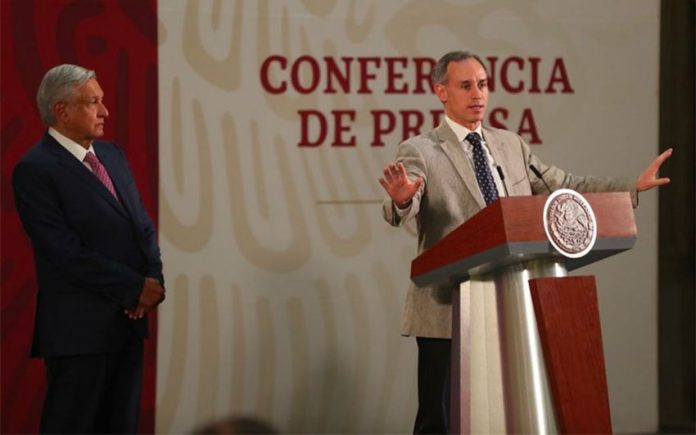Deputy Health Minister Hugo López-Gatell said on Thursday that the arrival in Mexico of phase 3 of the coronavirus outbreak, in which community transmission of the disease is widespread and cases number in their thousands, is inevitable.
“There is no doubt that phase 3, the maximum transmission phase, is coming,” he said.
But what will that mean in terms of the restrictions that will be imposed in order to limit the spread of Covid-19 as much as possible?
Obligatory quarantine, a “health curfew” in which people are only permitted to leave their homes during certain hours, strict restrictions on the departure and arrival of flights at Mexico’s airports, the closure of businesses where Covid-19 outbreaks have occurred and restrictions on the entry of foreigners are all likely once health authorities declare that the country has reached phase 3.
Other protocols that have already been activated, such as the social distancing initiative and the suspension of large events, would continue to be enforced.
It remains to be seen what penalties people would face if caught violating a government directive, such as an order to stay at home.
In phase 3 of the coronavirus outbreak, Mexico’s health care system is predicted to face significant pressure if it is not completely overwhelmed. The Health Ministry is currently predicting that 0.5% to 1% of Mexico’s population will be infected with Covid-19, meaning that close to 1.3 million people could catch the disease.
As of Thursday, 10% of the 585 people confirmed to have Covid-19 have required hospitalization. If that trend continues, and the Health Ministry prediction is accurate, as many as 130,000 people could need hospital care over the course of the pandemic.
However, López-Gatell said on Thursday that if a majority of people strictly observe the recommendation to stay 1.5 meters apart from each other during the March 23 to April 19 social distancing initiative and stay at home as much as possible, the possibility that Mexico’s hospitals will be overwhelmed with Covid-19 patients during phase 3 will be significantly reduced.
“We need you not to go out because this is the opportunity to reduce [the severity of] … the most intense stage of infection … and ease the rising trend of the epidemic,” he said.
López-Gatell added that the “social confinement” measures would not, however, be sufficient to put an end to the coronavirus outbreak. “It must be made clear that this cannot be achieved,” he said.
The deputy minister stressed that if Mexicans don’t follow the directive to keep their distance from each other, the consequences will be serious.
“Once the epidemic curve starts to grow exponentially, we can’t stop it,” he said, explaining that is what happened in Italy, Spain and the United States, which now has more confirmed cases of Covid-19 than any other country.
Asked whether decisions made by governors at a state level to limit the spread of coronavirus were a help or a hindrance, López-Gatell said that they were beneficial. Mexico City Mayor Claudia Sheinbaum and governors of at least 11 states have enforced their own measures to combat Covid-19 such as ordering the closure of a range of non-essential businesses including bars, movie theaters and gyms.
“Each state government has its own health authorities. We shouldn’t be concerned that governors are being proactive, it’s a virtue,” López-Gatell said.
Source: El Financiero (sp), La Jornada (sp)
